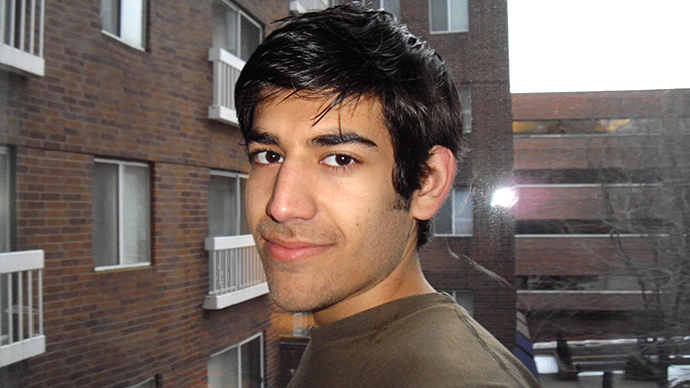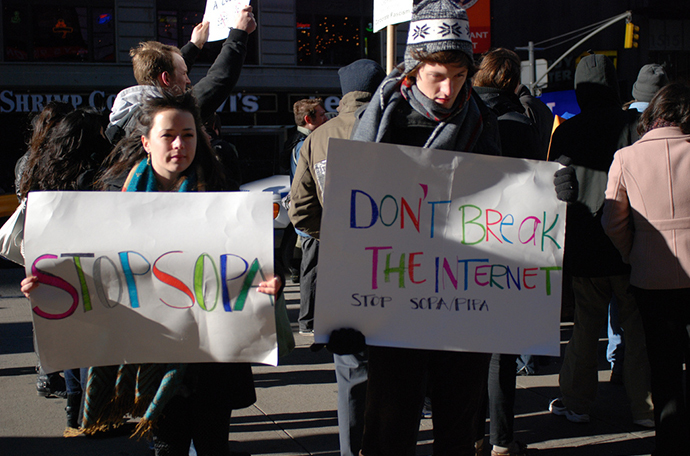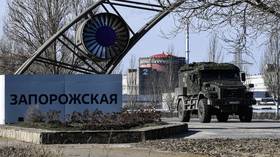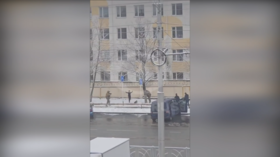Aaron Swartz inspired people ‘to become heroes of their own story’

Since Aaron Swartz’s death a lot of activists realize they’re facing huge battles, but everybody can be doing something to fight back in a way to address that, Parker Higgins from the Electronic Frontier Foundation told RT.
RT:‘The Day We Fight Back’ protest scheduled for Tuesday coincides with the anniversary of internet activist Aaron Swartz's death. How has privacy legislation progressed following his suicide, allegedly prompted by severe charges for unlawfully downloading academic journals online?
Parker Higgins: Obviously, a year ago we knew much less about the NSA, GCHQ and other Intelligence Agencies. In the last six to seven months we've learned things from Edward Snowden’s leaks that of course were issues that Aaron was himself very interested in. The privacy legislation has advanced a lot because of that and so we've seen things that are directly related to Aaron with move forward on cyber-crime law in the US, for example, but then there are a lot of things that he couldn't really foresee a year ago.
RT:Swartz's suicide has made him a martyr in the eyes of many internet freedom activists. Do you feel authorities effectively drove him to take his own life, with an impending potential 35 years in prison and $1 million in fines?
PH: I think suicide is very complex and there is no way to point at any single issue. Even if you don’t go as far as they’re saying: that the authorities drove him to this, it was an unjust and unnecessary display of power and a way to hound somebody, and they actually hounded him to death - we can’t know. But I do know that when you talk to the people that were close to him, that seems to be something that they think.
RT:How has what Aaron Swartz achieved and stood for motivated others to continue his cause?
PH: Aaron gave a great speech a couple of years ago now, just after we had won the SOPA battle, tactically. So the reason we won this was that people were inspired to become heroes of their own story, it really takes activism to their own hands. I think that this message has really resonated not just since his death, but especially in a year since his death, I think we've seen a lot of activists realize that we’re facing very large battles, but everybody can be doing something, everybody can be fighting back in a way to address that.

RT:Have more individuals and online groups worked to bolster support for opposition to anti-piracy and internet censorship laws in the year since his death?
PH: Sure. The state of the way that activists have been working together has really come a long way just in couple of years. Aaron played a major role in that, he helped to organize people especially around the so-called protests, but also around other issues, and those ties have stayed in place. You do have convergence even just a couple of years ago, the way the groups worked together, the way we have been able to assemble coalitions of dozens, in some case hundreds, of groups to work together on the single issue, to find consensus and push back collectively is really inspiring to me. And I think it would be inspiring to Aaron.
RT: Has the Swartz case changed government or public opinion at all in regards to how those who break into computer systems seeking to share data are treated?
PH: I think public opinion has changed around computer crime law. There have been, not just Aaron, but a number of high-profile cases where really we've seen this vague and outdated law being misapplied. There is a lot of prosecutorial discretion and we've seen prosecutors go up to people in really unjust ways.
Unfortunately, the government hasn't changed its perception here. There was a proposal last year in the US legislature called ‘Aaron’s law’ that would address some of the biggest concerns that we have, but Aaron’s law still hasn't advanced to the point where it works or can be signed. And in fact, we've seen proposals to make computer crime laws even harsher, and so this is something we need to keep working on until politicians who don’t have a great grasp on how technology works understand that this kind of prosecution is unacceptable.
The statements, views and opinions expressed in this column are solely those of the author and do not necessarily represent those of RT.
The statements, views and opinions expressed in this column are solely those of the author and do not necessarily represent those of RT.












